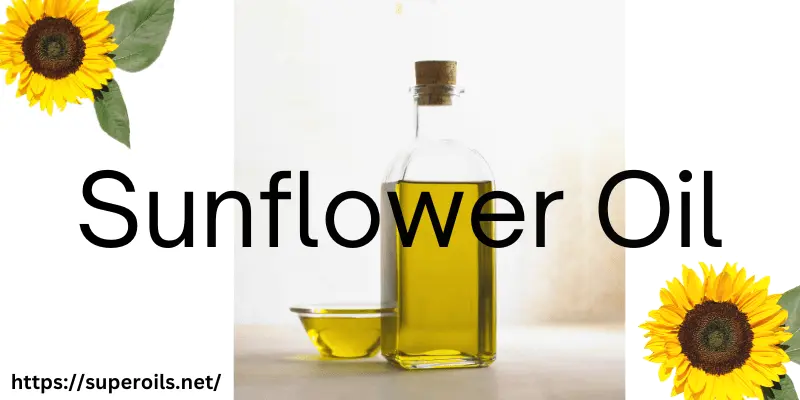Is Sunflower Oil the Best Cooking Oil?
Published: 12 Jan 2025
Sunflower oil has a rich history dating back to the 18th century, when Native Americans were the first to cultivate sunflowers for oil extraction. Today, it is a popular cooking oil globally, valued for its light texture, high smoke point, and rich nutritional profile, including antioxidants and vitamin E.
Benefits of Sunflower Oil
Sunflower oil offers numerous benefits, but like any product, it has some drawbacks. Below are the key advantages of using sunflower oil.

Advantages:
- Rich in vitamin E and antioxidants
- Supports heart health with healthy fats
- Non-comedogenic, making it great for skin
- High smoke point, ideal for cooking at high temperatures
- Lightweight and absorbs quickly into the skin
If you want to learn more about how different oils affect cooking, check out our detailed section on cooking oils here.
How to Use Sunflower Oil?
Sunflower oil is incredibly versatile, offering a variety of uses for both skincare and cooking. When used in skincare, it works as a natural moisturizer. Its lightweight texture helps it penetrate the skin, providing hydration without clogging pores. The vitamin E content acts as an antioxidant, protecting the skin from environmental damage. For cooking, sunflower oil is favored due to its high smoke point, making it ideal for frying, sautéing, and baking. It does not alter the flavor of food, allowing the natural tastes of ingredients to shine.
To use sunflower oil for skin care, simply apply a small amount to your face or body after washing for instant hydration. It can also be mixed with other oils or ingredients for DIY skincare treatments. When cooking, you can substitute sunflower oil for other oils in most recipes. Its mild flavor and high heat tolerance make it perfect for dishes that require high cooking temperatures, like stir-frying or deep-frying. Always store it in a cool, dry place to maintain its quality.
For a broader look at different types of oils, you can visit this guide to compare sunflower oil with other oil options.
Applications of Sunflower Oil
Sunflower oil is widely known for its versatility and can be applied in various ways, from skincare to cooking. Whether you’re looking to nourish your skin or prepare a healthy meal, sunflower oil offers a range of benefits.
Applications of Sunflower Oil:
- Skincare: Moisturizes and nourishes the skin without clogging pores.
- Hair Care: Helps improve hair health by moisturizing and adding shine.
- Cooking: Ideal for frying, sautéing, and baking due to its high smoke point.
- Makeup Remover: Gently removes makeup while hydrating the skin.
- Massage Oil: Acts as a smooth base for relaxing massages.
- Salad Dressing: A healthy alternative to other oils in dressings.
- Lip Care: Prevents dryness by acting as a natural lip balm.
- Cuticle Care: Softens cuticles and promotes healthy nail growth.
Conclusion
So guys, in this article, we’ve covered ‘Sunflower Oil’ in detail. Based on its high nutritional value and versatility, I recommend using sunflower oil for both cooking and skincare. It offers great benefits without compromising on quality. Try it out and see the difference it can make!
Common FAQs
What Is Sunflower Oil Made From?
Sunflower oil is made from the seeds of sunflowers. The seeds are pressed to extract the oil. It’s a light, neutral oil commonly used for cooking and skincare.
Can Sunflower Oil Be Used On The Skin?
Sunflower oil is great for moisturizing the skin. It’s light and absorbs easily without clogging pores. It also contains vitamin E, which helps protect the skin from damage.
Can Sunflower Oil Help With Hair Growth?
Yes, sunflower oil can promote healthy hair growth. It moisturizes the scalp and strengthens hair. Its vitamin E content nourishes hair follicles, leading to healthier strands.
What’s The Difference Between Refined And Unrefined Sunflower Oil?
Refined sunflower oil is processed to remove impurities, making it more neutral in taste. Unrefined sunflower oil retains more nutrients but has a stronger flavor. Choose based on your cooking needs and taste preferences.
